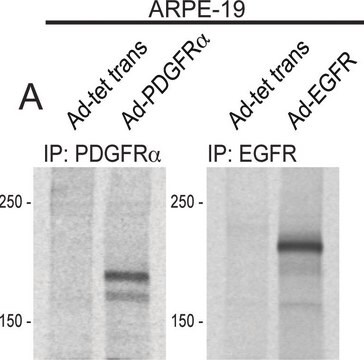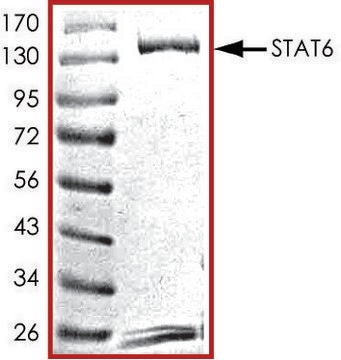616373
Tpl2 Kinase Inhibitor
The Tpl2 Kinase Inhibitor, also referenced under CAS 871307-18-5, controls the biological activity of Tpl2 Kinase. This small molecule/inhibitor is primarily used for Phosphorylation & Dephosphorylation applications.
Synonim(y):
Tpl2 Kinase Inhibitor, 4-(3-Chloro-4-fluorophenylamino)-6-(pyridin-3-yl-methylamino)-3-cyano-[1,7]-naphthyridine
Wybierz wielkość
986,00 zł
Dostępny w magazynieSzczegóły
Wybierz wielkość
About This Item
986,00 zł
Dostępny w magazynieSzczegóły
Polecane produkty
Poziom jakości
Próba
≥95% (HPLC)
Formularz
solid
producent / nazwa handlowa
Calbiochem®
warunki przechowywania
OK to freeze
protect from light
kolor
yellow
rozpuszczalność
DMSO: 10 mg/mL
Warunki transportu
ambient
temp. przechowywania
−20°C
ciąg SMILES
Fc1c(cc(cc1)Nc2c3c(ncc2C#N)cnc(c3)NCc4cnccc4)Cl
InChI
1S/C21H14ClFN6/c22-17-6-15(3-4-18(17)23)29-21-14(8-24)11-26-19-12-28-20(7-16(19)21)27-10-13-2-1-5-25-9-13/h1-7,9,11-12H,10H2,(H,26,29)(H,27,28)
Klucz InChI
NMEUKWOOQOHUNA-UHFFFAOYSA-N
Opis ogólny
Działania biochem./fizjol.
Tpl2 Kinase
Opakowanie
Ostrzeżenie
Rekonstytucja
Inne uwagi
Informacje prawne
Hasło ostrzegawcze
Warning
Zwroty wskazujące rodzaj zagrożenia
Zwroty wskazujące środki ostrożności
Klasyfikacja zagrożeń
Eye Irrit. 2 - Skin Irrit. 2
Kod klasy składowania
11 - Combustible Solids
Klasa zagrożenia wodnego (WGK)
WGK 2
Certyfikaty analizy (CoA)
Poszukaj Certyfikaty analizy (CoA), wpisując numer partii/serii produktów. Numery serii i partii można znaleźć na etykiecie produktu po słowach „seria” lub „partia”.
Masz już ten produkt?
Dokumenty związane z niedawno zakupionymi produktami zostały zamieszczone w Bibliotece dokumentów.
Active Filters
Nasz zespół naukowców ma doświadczenie we wszystkich obszarach badań, w tym w naukach przyrodniczych, materiałoznawstwie, syntezie chemicznej, chromatografii, analityce i wielu innych dziedzinach.
Skontaktuj się z zespołem ds. pomocy technicznej





